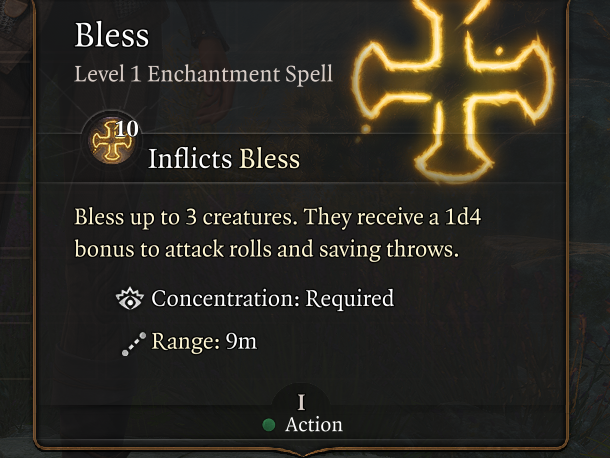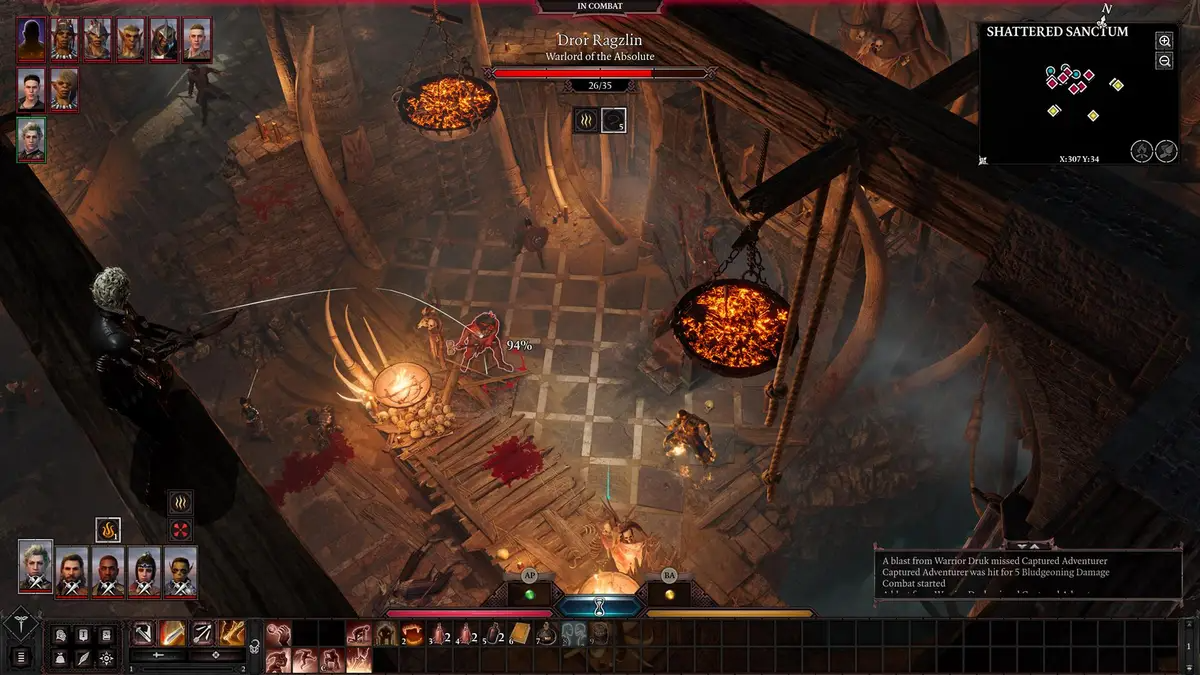Welcome to the Top 5 Beginner Tips guide for Baldur’s Gate 3. In this BG3 Beginner guide we will share five great pieces of advice for new players who are about to start the game, who already started it and are struggling, or who just want to learn more about the game.
Baldur’s Gate 3 Beginner Tips
Without any further delay, below are our top five beginner tips for new players in BG3:
Tip #1: Choose the Correct Abilities
This is something that applies right from the start of the game for any class and BG3 build – you can get the best possible start by maxing out the correct attributes. You can min-max this by choosing a race that helps you to do this, but you can still get by fine in the game if you just do the best with whatever race you like the most, even if it’s not the most natural fit for your class.
But what attributes are the best? Well, this depends on your class and your chosen weapons. In general, if you remember the following rules then you won’t go far wrong:
- Martial Weapons need high Strength
- Finesse Weapons need either high Strength or Dexterity – the game will use whichever is highest.
- Classes not wearing Heavy Armour should have high Dexterity to improve their Armour Class rating.
- It’s advised that everyone has at least 14 Constitution, to increase Hitpoints. (Esp squishy builds like Wizard, Sorc, Bard, Warlock)
- Intelligence, Wisdom or Charisma is used for Spellcasting. Which one of these you need depends on your Class.
Most of the time we recommend increasing your main offensive attribute (STR, INT, WIS or CHA) as high as possible, along with Dexterity, although there are some exceptions. For more help with this, please check out our Baldur’s Gate 3 Build Guides – we have a build for each class so you can get some guidance on how to allocate your Abilities.
Tip #2: Use Buff and Debuff Spells
There are some really good Spells and Cantrips in Baldur’s Gate 3, available from the start of the game, that are easy to overlook. Spells like Bless, which gives a +1-4 bonus on your Attack Rolls, might not sound very powerful. But it actually makes a huge difference in combat. Bless is available on Cleric Builds, Bard Builds and Paladin Builds.
Similarly, you can use the Bane Spell which gives the opposite effect to enemies, available on Bard and Cleric. Then there is the Guidance Cantrip (Cleric and Druid), which gives the same effect but in out of combat Ability Checks like Persuasion and Lockpicking. The easiest way to get these spells is to recruit Shadowheart to your party. Make use of these spells in tough situations and you’ll find your party members perform much better.
Tip #3: Stack the odds in your Favour
Most of the game systems in Baldur’s Gate 3, even combat, revolve heavily around dice roll RNG to determine how things pan out. Your hit chance and damage are both determined by these dice rolls. However, there are ways to manipulate the odds in your favour.
Whatever number the dice rolls can be added onto by making sure you’re in an advantageous position compared to your enemies. For example, attacking from Higher Ground will give you a bonus, this is especially important for ranged setups like the Ranger Build, Wizard Build or Sorcerer Build. Additionally, make sure your character is Proficient with the weapon they are using and has their Abilities correctly assigned, as mentioned in tip #1. Using the Bless spell as mentioned in tip #2 also helps with this.
We wrote a full guide on how to master the dice roll system in BG3. Once you get to grips with these systems and learn how to use them to your advantage, you’ll have a much better time with combat in Baldur’s Gate 3.
Tip #4: Understand Spell Concentration
If you switch to a Spellcaster Build in your party and look through their Spells, you’ll probably find something called “Concentration” in the tooltips of several of them.
Concentration is the most important spell mechanic to learn in Baldur’s Gate 3. Spells labelled this way have ongoing effects that can persist for a very long time, normally 10 turns. However for the effect to last, the spellcaster needs to keep concentrating on the spell.
Each spellcaster can only concentrate on one spell at a time, so if you cast another spell with the Concentration label in the tooltip, then it will immediately end the ongoing effect from the first one. For example, the Cleric Build can cast Spirit Guardians: Radiant and keep it active. If you cast the Planar Binding Spell the Spirit Guardians will disappear, because only one Concentration spell can be active.
Taking damage while Concentrating on a Spell will initiate a Concentration Check in BG3. This is basically a dice roll where you need to roll a certain number to continue concentrating on the Spell. The number depends on how much damage you took, but you get a bonus based on how high your Constitution Ability is. If you fail the check, the spell will be broken. That also means melee builds like the Barbarian Build, Paladin Build, Fighter Build or Rogue Build are especially dangerous.
Being knocked Prone or otherwise incapacitated will also break any ongoing Concentration Spell.
Concentration Spells can be very powerful, so try to put your Spellcaster in a position where they’re not likely to take damage for at least a couple of turns before casting one. This can allow you to dominate the battlefield and turn the tide against your enemies.
Tip #5: Be Proficient
Different characters in Baldur’s Gate 3 are Proficient in different skills, and with different types of weapons and equipment. This largely depends on your chosen Class and Race. Your character will perform much better in combat when they are using items that they are Proficient with.
If you’re unsure, take a look at the item’s tooltip. The game should warn you with a “Not Proficient” message in the tooltip if you’re looking at something that your character lacks Proficiency for. While in many cases you can still equip the item, this is not advisable as your character isn’t comfortable using it and is likely to make a lot of mistakes.
I hope you found these Beginner Tips for Baldur’s Gate 3 useful.
Other Baldur’s Gate 3 Guides & Beginner Tips
- Bard Build – College of Lore
- Ranger Build – Hunter
- Monk Build – Way of Shadows
- Fighter Build – Battle Master
- Barbarian Build – Berserker
- Warlock Build – Great Old One
- Cleric Build – Light Domain
- Rogue Build – Thief
- Sorcerer Build – Wild Magic
- Wizard Build – Evocation School
- Paladin – Oath of Ancients
- Why do my Attacks Miss So Much?
- More Baldur’s Gate Guides & Builds
- Top 5 Exploration Spells







